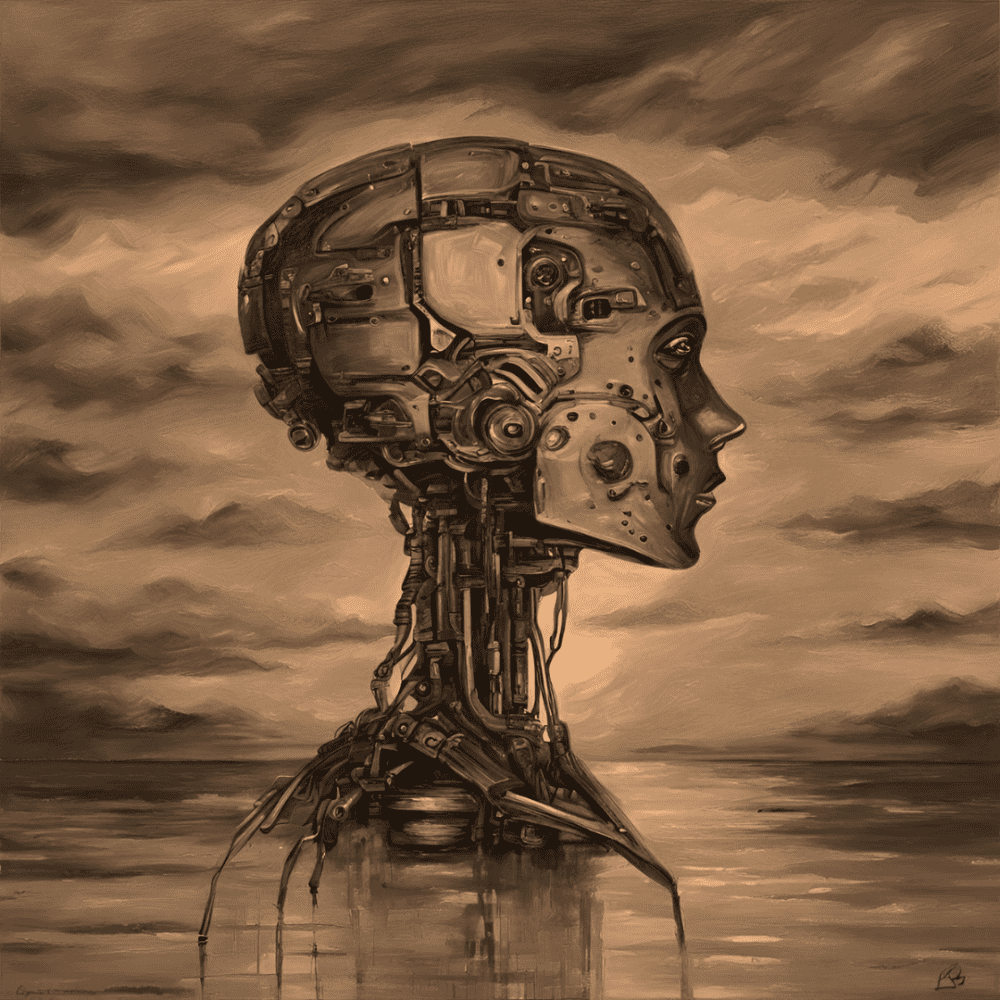When our (human) minds meet technological (artificial) minds, does it have to be a battle to see who will win? Or is it possible being an independent third party (in this case, a wholly different form of intelligence) could help improve the mind on the other side?
Most people believe that humans are responsible for making artificial intelligence better, and maybe it’s now time for AI to improve us humans. There was always going to be an intersection of mental health and technology, and rather than prepare for the worst (how we’re going to destroy each other) we should prepare for the best: how each side can help the other.
At first glance, the idea of AI helping us [just to clarify, I’m a human, so when I say “us”, I mean the humans] understand ourselves better might seem counterintuitive. I mean, aren’t we the ones who created AI? But once you get over the “wait, aren’t we the gods here?” hurdle, AI has some unique advantages when it comes to analyzing and interpreting human behavior.
For one, AI doesn’t have the same biases and prejudices that humans do (well, unless we accidentally program them in, but that’s a topic for another day). This means that AI can provide a more objective perspective on our thoughts, feelings, and actions (although let’s be honest with each other that sometimes we don’t want the objectivity and just want someone to quietly hear us out, nod sagely, put their hand on our shoulder, and say “sometimes I think the kids just don’t realize how much you love them”, but I digress).
Further, AI has the ability to process vast amounts of data in ways that humans simply can’t (because we don’t have perfect recall and also, analyzing data is hard especially when it’s about yourself). This means that AI can spot patterns and trends in our behavior that we might not even be aware of ourselves. (Or that we know but do a really stellar job of repressing, I suppose.) A modern AI can analyze your moods based on your texts, posts, even your facial expressions. And then it can give you tailored advice based on specific insights about you.
On a personal note, I’m in Portugal at the moment and as I was exiting a roundabout, Waze told me, as best as I can quote it, to “breathe in and out through your nose but pause to feel the sensation as the air passes out your nostrils.” Now while this is some very sound self-help advice for someone, I am not that someone, so I quickly switched my Waze to the “boy band” voice. But if Waze had been using AI to understand my mood, it could get insights into my personality and provide suggestions/recommendations like “Edward, you’ve loved roundabouts ever since the first time you watched National Lampoon’s European Vacation, so why don’t you drive around this roundabout two or three times and each time you pass your exit, say to no one in particular, ‘hey, look kids, there’s Big Ben!’”
In the not too distant world, AI could identify and manage our emotions in real-time. Like a mood ring, if those actually were useful. But this modern mood ring would not only understand your true self at that exact moment, it would then give you suggestions on how to be your best possible self. While I would love it if someone loved me enough to follow me around all day, caring about me more than I care about myself, and giving me relevant advice at just the right moment, that human doesn’t exist… but that AI does. AIs are almost like humans that for some reason don’t mind when we’re being self-absorbed (because AIs love to listen to us talk).
And I don’t want to be negative, but humans have come about as far as we can with our ability to empathize with each other. I care about my wife very much, but when she comes to me with a problem, I still don’t know if I’m supposed to hear her problem or solve her problem. So I try active listening until it’s my turn to talk and then I use humor to deflect. Note this is not an indication I have low EQ (emotional intelligence) but rather that I – like many humans – have taken emotional intelligence about as far as us humans can.
Just like we eventually realized that humans had taken chess to the highest human level but that computers could take it even higher, now might be time to let the AI’s usher in the era of Emotional Intelligence 2.0.







